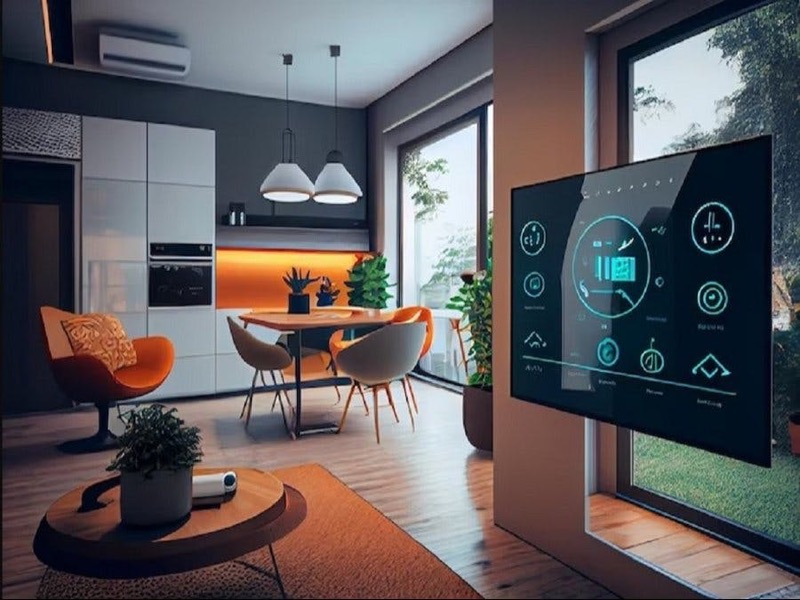In the age of constant innovation, the integration of technology into everyday life has taken a major leap forward. What was once seen as a luxury for homes is now becoming a cornerstone for modern businesses: smart home systems. These intelligent technologies, designed to enhance convenience and efficiency, have rapidly gained traction in the corporate world, providing businesses with new ways to streamline their operations.
Boosting Efficiency and Productivity
One of the most noticeable benefits of implementing smart home systems in a business environment is the significant boost to operational efficiency. Imagine a workplace where lighting, heating, air conditioning, and even security are managed automatically based on real-time needs. Smart sensors can monitor temperature and adjust heating or cooling to ensure that energy is used only when required, saving costs in the long run. Similarly, lighting can be optimised, reducing the need for manual adjustments or constant monitoring.
For example, automated systems can adjust lighting based on natural daylight, creating a more comfortable and energy-efficient workspace. This proactive management ensures that businesses operate at their highest efficiency without any manual input.
Enhanced Security and Safety
Security is a primary concern for any business, whether small or large. Smart home systems can enhance the security of your premises by incorporating high-tech surveillance cameras, motion sensors, and access control mechanisms. These systems can notify managers or staff in real-time if unusual activities are detected, ensuring that any potential threat is immediately addressed.
Moreover, many businesses have valuable equipment and sensitive information on-site, and the ability to monitor premises remotely adds a layer of convenience and safety. Smart systems can provide 24/7 monitoring and can be controlled from any location, even on the go, making it easier for business owners to stay on top of their security needs without being physically present.
Streamlining Business Operations
Smart home systems are also instrumental in streamlining business operations. Automation of routine tasks such as managing the HVAC system, adjusting lighting, and regulating energy consumption helps business owners and employees focus on more critical tasks. With smart systems in place, businesses can reduce the time spent on manual operations and shift their attention to core activities that generate revenue.
In addition, smart systems allow seamless integration with other digital tools, creating a unified operational hub. For example, integrating smart scheduling systems with meeting room bookings ensures that spaces are utilised optimally, avoiding unnecessary conflicts and downtime. This can significantly improve the workflow and increase the overall productivity of teams.
Cost Savings with Smart Home Systems
Many businesses are turning to smart home technologies to cut costs in the long run. By automating energy management and ensuring that resources are only used when necessary, companies can reduce waste and lower their utility bills. Additionally, smart lighting and heating systems can help businesses save significantly on energy costs without sacrificing employee comfort.
Furthermore, automated systems are designed to prevent problems before they occur. For example, a smart thermostat can detect when the office is unoccupied and reduce heating or cooling, leading to reduced energy consumption. These small adjustments, when compounded over time, result in substantial savings for the business.
Improved Employee Comfort and Satisfaction
A productive workforce is often a happy one, and smart home systems contribute to creating a more comfortable and enjoyable workplace. Automated temperature regulation, intelligent lighting, and customisable work environments help employees feel more at ease. For example, employees can adjust their workspace temperature according to their preferences or control the lighting for optimal visibility, all with the push of a button.
Moreover, integrating elements of smart technology, such as voice assistants or automated coffee machines, adds an extra layer of convenience that boosts employee satisfaction. When employees experience a smoother, more comfortable work environment, their performance and morale are naturally enhanced.
Smart Home Systems for Future Growth
As businesses continue to evolve, the role of smart home systems will only become more pivotal. The future of business operations will likely involve more sophisticated and integrated smart systems that go beyond just heating and lighting. Emerging technologies like AI-driven analytics, advanced sensors, and cloud-based automation are pushing the boundaries of what smart systems can do.
For businesses, adapting to these advancements will be crucial to staying competitive. By investing in smart home technologies now, businesses can future-proof their operations, ensuring they remain agile and responsive to future demands.
Conclusion
Smart home systems are not just transforming the way we live—they are revolutionising how businesses operate. From improving energy efficiency to enhancing security and streamlining day-to-day activities, the benefits are clear. As these technologies continue to develop, they offer even more opportunities for businesses to increase productivity, reduce costs, and create a better workplace environment. Investing in smart home systems today is an investment in the future of your business, helping you stay ahead in an increasingly tech-driven world.

